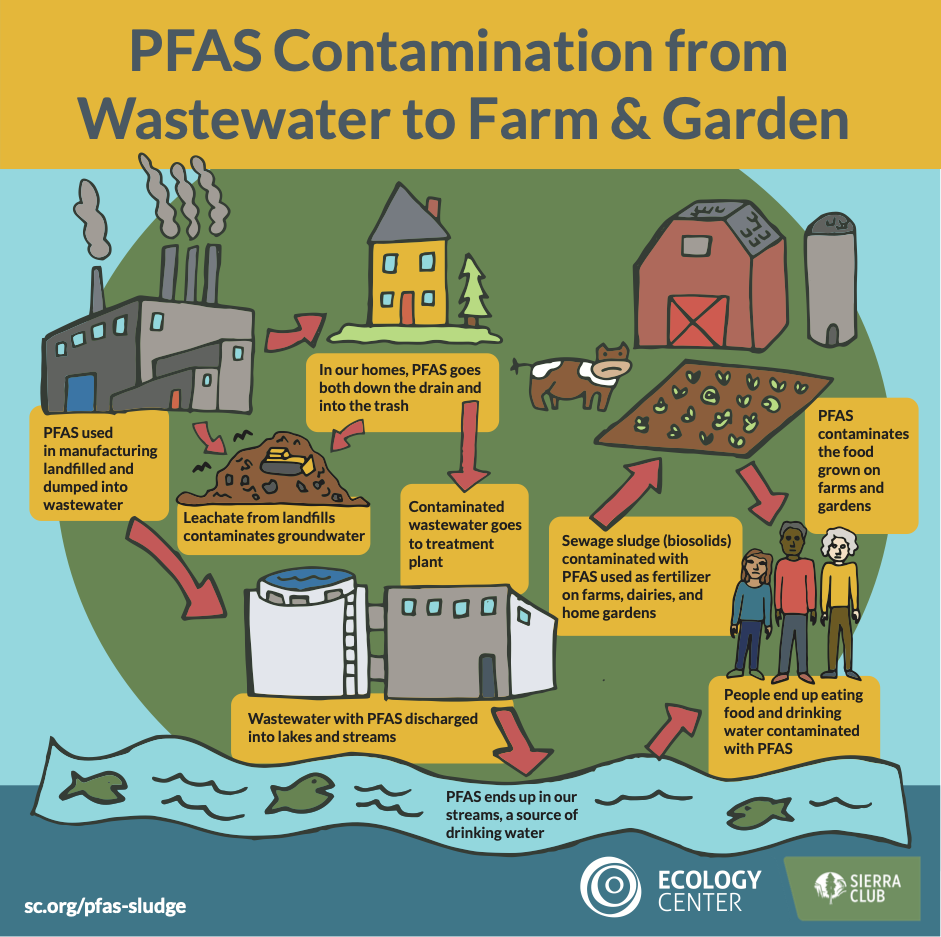
By Darlene Schanfald, North Olympic Group Chair & Chapter Toxics Committee Member
The Washington State Department of Ecology is asking for public comment on its DRAFT Sewage Solids (Biosolids) General Permit through July 12.
This waste is what is left over after a level of decontamination, then separation from the water residuals (effluent) in the public and private processing plants. Ecology staff prefers allowing municipalities that create fertilizers and compost, as well as haulers that market the waste for farms and forests, work under general permits as opposed to individual permits. Individual permits would entail more Ecology oversight of the permittees and allow more public involvement.
A critical problem is that Ecology focuses on “best management practices” rather than “best available science.” Fifteen years ago the USEPA took 75 municipal sludge samples from 35 U.S. states and identified nearly 400 listed contaminants and hazardous wastes. Still, EPA and Ecology allow the land spreading in farms and forests, and selling such waste for compost and fertilizer on the basis that the waste’s nine metals, nitrogen and phosphorus have “beneficial use,” ignoring the other 80,000 chemicals in the wastes from toilets, industry, and septage.
Ecology is not bound by what EPA recommends. Ecology can increase the list of contaminants that municipalities and haulers must analyze, including for the “forever chemical” PFAS.
A recent Sierra Club study, “Sludge in the Garden” (highlight) tested nine compost products used by home gardeners, including one produced in Washington State. These commercial composts are commonly made with sewage sludge. All nine (marketed as “eco” or natural) contained PFAS. Eight of the nine products contained PFAS at a level higher than that allowed by the states of Maine or Vermont, which currently have the strictest safeguards for PFAS contamination of agricultural lands.
It is time for Ecology to write permits that will protect the natural environment and human health.
Please write Ecology and tell them:
- Update the three-decades-old regulations on which it bases permits to reflect current science: Testing must be done for PFAS, PCBs, pharmaceuticals, endocrine disruptors, and antibiotic resistant bacteria before spreading it on land and selling it as compost.
- Increase oversight and enforcement for when and where the sludge is spread.
- Disallow the land spreading of septage and sludge within 200 feet of public and private wells, surface water bodies, and.above critical aquifer recharge areas.
- To avoid runoff, disallow spreading sludge during wet seasons of rain and snow.
- Disallow the waste to be spread on ski slopes.
- Permits should reflect the 2021 HEAL ACT.
- Require that crops grown in this sewage waste and commercial composts be labeled as such.
Click below to read Ecology draft permit language, press release and how to comment.
Comment here!